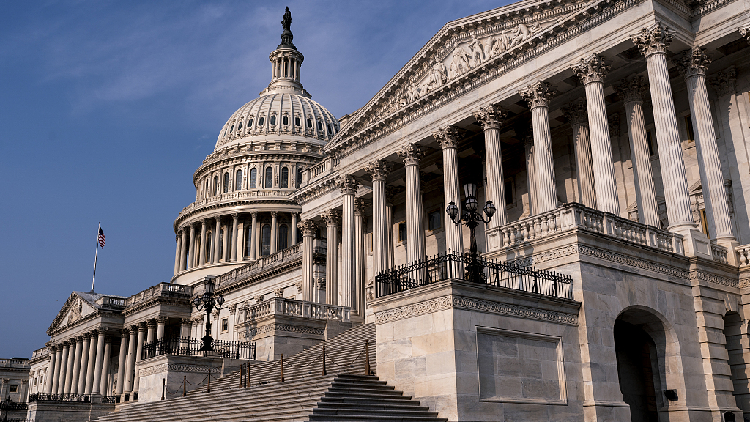
Decoding Trump’s Antarctic Rhetoric: Fact vs. Fiction
The vast, icy continent of Antarctica, a realm of scientific research and international cooperation, has occasionally found itself at the center of a different kind of discourse: political rhetoric. Specifically, former President Donald Trump’s pronouncements regarding the continent have sparked curiosity and, at times, confusion. What is the reality behind these statements, and where does fact diverge from fiction? This post aims to unpack Trump’s Antarctic rhetoric, providing clarity and context for those seeking to understand this unique intersection of politics and polar science.
The Allure of the South Pole: Why Talk About Antarctica?
Antarctica, often perceived as an untouched frontier, holds significant geopolitical and environmental importance. It’s a continent dedicated to peace and science under the Antarctic Treaty System. Discussions about it can touch upon a variety of themes, from resource potential (though heavily restricted by treaties) to climate change impacts and national prestige. When political figures, particularly those with a penchant for grand statements, turn their attention to such a unique location, it’s natural to question the substance of their words.
Examining Trump’s Antarctic Statements: A Closer Look
To truly decode Trump’s Antarctic rhetoric, we need to scrutinize the specific claims and contexts in which they were made. Like his approach to other complex issues, such as tariffs or immigration, a consistent pattern of framing and assertion has emerged.
Potential Areas of Trump’s Antarctic Focus (Based on broader rhetorical patterns):
- Resource Claims: While the Antarctic Treaty prohibits mining, discussions about potential future resource access or territorial claims have occasionally surfaced in broader geopolitical conversations.
- Climate Change and Ice: Trump’s administration famously withdrew the U.S. from the Paris Agreement, and his skepticism towards climate science was well-documented. Antarctica is a critical barometer for climate change, with its ice sheets directly impacting global sea levels.
- Geopolitical Positioning: Any nation’s interest in Antarctica can be interpreted through a lens of global influence and strategic advantage.
It’s crucial to remember that when dissecting political discourse, especially regarding complex scientific and treaty-bound territories, separating objective reality from the speaker’s agenda is paramount. Just as his tariff narrative was challenged for its factual underpinnings, so too might his statements about Antarctica warrant a critical examination.
Fact-Checking the Claims: What the Data Shows
When former President Trump has spoken about issues that intersect with scientific realities, a pattern has emerged where his statements are sometimes at odds with established facts. For instance, fact-checks of his speeches and public remarks have often highlighted instances of what can be described as “fictional stories” or statements lacking factual basis.
When considering any claims related to Antarctica, it’s essential to consult reliable sources such as:
- The U.S. Antarctic Program (USAP): This government entity provides extensive information on scientific research and U.S. activities in Antarctica.
- The National Science Foundation (NSF): As the primary funder of U.S. Antarctic research, the NSF is a key source of accurate data.
- The Antarctic Treaty System Secretariat: This organization provides information on the governing treaty and its protocols.
A Hypothetical Scenario: Comparing Rhetoric to Reality
Imagine a hypothetical statement from a political figure suggesting rapid melting due to specific, unproven causes. To fact-check this, one would compare it against:
- Peer-reviewed scientific studies: These are the bedrock of our understanding of Antarctic ice dynamics.
- Data from ice core samples: These provide historical climate information.
- Satellite imagery and measurements: These track changes in ice sheets over time.
The objective is to see if the rhetoric aligns with the overwhelming scientific consensus or if it represents a departure from it, similar to how claims about immigration data or diversity, equity, and inclusion (DEI) programs have sometimes been challenged.
The Role of Interpretation: Fact vs. Fiction in the Listener’s Ear
It’s also important to acknowledge that how a message is received can be influenced by the listener’s existing beliefs and predispositions. As some analyses suggest, the interpretation of political words can be heavily filtered through pre-existing opinions about the speaker. This doesn’t change the objective facts, but it does explain why different individuals might perceive the same statement very differently. When discussing Trump’s rhetoric, understanding this interpretive layer can be as important as verifying the factual accuracy of the statements themselves.
Navigating the Ice: Your Takeaways
Understanding former President Trump’s Antarctic rhetoric, or any political discourse about complex subjects, requires a discerning approach. Here’s how you can effectively navigate these conversations:
- Prioritize Credible Sources: Always cross-reference claims with established scientific bodies and official treaty organizations.
- Be Wary of Anecdotes: While stories can be compelling, they are not a substitute for data when discussing scientific matters.
- Understand the Political Context: Recognize that political rhetoric often serves a purpose beyond simple factual reporting.
- Apply Critical Thinking: Question extraordinary claims and seek evidence-based explanations.
By approaching discussions about Antarctica, and indeed all political statements, with a commitment to factual accuracy and critical analysis, you can better understand the realities of our world and the information presented to you. The continent of Antarctica, with its scientific importance and protected status, deserves a discourse grounded in truth and respect for the international agreements that govern it.

Additional Information
Decoding Trump’s Antarctic Rhetoric: Fact vs. Fiction in English
While Donald Trump’s public discourse often ignites intense debate, it’s crucial to dissect his statements with a critical eye, separating factual assertions from narrative-driven pronouncements. This applies particularly to his rhetoric on various policy areas and his general communication style. To understand “Trump’s Antarctic Rhetoric,” we must acknowledge the broader patterns of his communication and how they are often perceived and interpreted.
The Nature of Trump’s Rhetoric: A Pattern of Narrative Over Fact
The provided search results offer a consistent theme: a significant disconnect between Trump’s public claims and verifiable facts. This isn’t to suggest that all of his statements are intentionally false, but rather that his approach often prioritizes a persuasive narrative over strict adherence to data or evidence.
- Tariff Narrative: As highlighted by one article, Trump’s claims about America being “under siege by unfair tariffs” are presented as justification for his protectionist policies. However, an examination of the underlying facts often reveals “not much truth behind it.” This suggests a tendency to frame economic issues through a specific, often nationalistic, lens that may not align with the full economic reality.
- Immigration Data: Similarly, data exposes a “stark disconnect between the Trump administration’s immigration rhetoric and the actual numbers.” This implies that the language used to describe immigration policies might be more about shaping public perception than reflecting precise demographic or statistical trends.
- Fictional Stories: CNN’s fact-checking efforts point to Trump “littering his public remarks with fictional stories.” This is a direct accusation of factual inaccuracy, suggesting a pattern of embellishment or invention that moves beyond mere interpretation.
- DEI and Reverse Discrimination: The “Trump Administration’s Dubious War on Reverse Discrimination” and the “Trump’s DEI Ban: Facts Vs. Fiction” articles indicate that policies and pronouncements are often driven by ideology rather than a solid grounding in demonstrable facts about discrimination. The framing of DEI initiatives as detrimental to a multiracial democracy, for instance, is presented as a claim that requires factual accountability, suggesting it might be more ideological than evidence-based.
Interpretation and the Role of Perception
Understanding how Trump’s words are received is as important as analyzing their factual content. As one HubPages article notes, the interpretation of Trump’s words is heavily influenced by the observer’s pre-existing disposition towards him: “there’s something more important to understand here, and that’s the underlying reason behind how these words are being interpreted—especially by those who dislike Trump and believe he is the devil incarnate.”
This points to a crucial dynamic:
- Confirmation Bias: Supporters may readily accept Trump’s narratives as factual, reinforcing their existing beliefs.
- Skepticism and Scrutiny: Opponents are more likely to scrutinize his statements for factual inaccuracies, often finding them.
- The “Visceral” vs. the “Carefully Prepared”: While a State of the Union address is described as “carefully prepared, thematic in nature and light on raw, ‘lock-her-up’ partisanship,” Trump’s more spontaneous communication, like tweets, is characterized as “visceral.” This suggests a difference in the intent and delivery of his messages, with the former potentially aiming for a broader appeal and the latter for immediate, emotional impact.
The Concept of “Antarctic Rhetoric”
While the provided search results don’t directly address “Antarctic Rhetoric,” we can infer its meaning by applying the principles of analyzing Trump’s communication. “Antarctic Rhetoric” would likely refer to:
- Extreme or Polarizing Language: The “Antarctic” implies a stark division, a complete opposition or a distant, unapproachable position. Trump’s rhetoric is often characterized by its divisiveness, creating “us vs. them” scenarios.
- Statements Far Removed from Objective Reality: Just as Antarctica is a remote and extreme environment, “Antarctic Rhetoric” could describe statements that are significantly detached from verifiable facts or mainstream consensus. This aligns with the identified patterns of “fictional stories” and “disconnects” between rhetoric and data.
- A Rhetorical Strategy of Othering or Vilification: In the context of political discourse, extreme or distant language can be used to demonize opponents or create an insurmountable chasm between differing viewpoints.
Applying the Analysis to “Antarctic Rhetoric”
If we were to apply the principles derived from the search results to “Antarctic Rhetoric” specifically attributed to Trump, we would look for:
- Factual Basis: Are the claims made in this “Antarctic Rhetoric” supported by evidence? Or are they, like the tariff narrative or immigration data, demonstrably at odds with reality?
- Narrative Construction: What is the underlying story Trump is trying to tell with this rhetoric? Is it designed to evoke strong emotions, simplify complex issues, or create a particular perception of reality?
- Interpretational Context: How is this rhetoric likely to be perceived by different segments of the population? Will it reinforce existing biases, or does it have the potential to persuade those who are not already committed to a particular viewpoint?
- Intent and Impact: Is the “Antarctic Rhetoric” a deliberate strategy to polarize, to distract, or to mobilize a base? What is the likely impact on public discourse, policy-making, and social cohesion?
In conclusion, analyzing “Trump’s Antarctic Rhetoric” requires an understanding of his broader communication patterns, which often involve prioritizing narrative over strict factual accuracy. The search results consistently point to a disconnect between his pronouncements and verifiable data across various policy areas, alongside accusations of fabricating stories. The interpretation of such rhetoric is further complicated by the audience’s pre-existing biases. Therefore, to decode “Antarctic Rhetoric,” one must meticulously examine the factual underpinnings, deconstruct the constructed narrative, and critically assess its reception and intended impact within the broader landscape of political discourse.






Leave a Reply